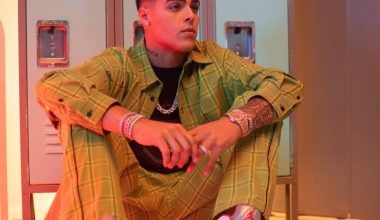Rap music is more than just songs; it’s a voice, a movement, and a way to tell stories. From rhyming words to expressing feelings, rap connects with millions of people worldwide. But have you ever thought about who is the first rapper in the world? That’s a big question, and the answer is not as simple as it seems.
Rap didn’t just appear one day. It has a long history, tied to culture, struggle, and creativity. This blog takes you through rap’s beginnings, the legends who started it all, and how it became what we love today. Let’s dive in and explore the story behind rap music!
Where Did Rap Come From?
Before we name the first rapper in the world, we need to understand where rap started. It was born in the 1970s in the Bronx, New York City. The Bronx was a melting pot of cultures, especially African American and Caribbean influences. Life wasn’t easy for many people there, but music became a way to escape, express themselves, and come together as a community.
Even before the Bronx gave us rap, storytelling through music had been around for centuries:
- African Griots: These were storytellers in Africa who used drums and rhythm to share stories and history.
- Jamaican Toasting: In Jamaica, DJs would “toast,” or talk rhythmically, over reggae beats. This style inspired early rappers in New York.
So, while rap as we know it started in New York, it has deep roots in storytelling traditions from across the world.
Who Is the First Rapper in the World?
Now let’s get to the big question: who is the first rapper in the world? Many believe the honor goes to Coke La Rock, a Bronx native who performed in the 1970s with DJ Kool Herc. Coke La Rock didn’t release songs like rappers do today, but he used rhymes and rhythm to hype up the crowd at parties. He’s often called the “first MC,” which stands for Master of Ceremonies.
Here’s what Coke La Rock did:
- He rhymed simple lines like “You rock and you don’t stop.”
- He got the crowd excited with his words, creating the foundation for rap performances.
Though Coke La Rock’s name might not be as famous as today’s rap stars, his contributions were crucial in making rap what it is today.
The Father of Hip-Hop: DJ Kool Herc
While Coke La Rock is considered the first rapper in the world, his partner, DJ Kool Herc, is often called the “Father of Hip-Hop.” He wasn’t a rapper, but his DJing skills created the stage for rapping to happen. In the early 1970s, DJ Kool Herc introduced the idea of “breakbeats” at block parties in the Bronx. He would play the instrumental sections of songs repeatedly, giving people a chance to dance and rhyme over the beats.
This idea of looping beats became the backbone of rap music.
Early Rap Stars Who Shaped the Genre
Rap didn’t become a global phenomenon overnight. Many early artists worked hard to shape and grow the genre. Here are some key pioneers who followed Coke La Rock:
- Afrika Bambaataa: He formed the Universal Zulu Nation and used rap to promote peace and unity in the community.
- Grandmaster Flash and the Furious Five: Their song “The Message” talked about real-life struggles in the city, making rap a voice for the unheard.
- The Sugarhill Gang: Their hit song “Rapper’s Delight” in 1979 was the first rap song to gain mainstream attention.
Each of these artists added something special to rap, helping it grow into a movement.
What Was Rap Like in the 1980s?
The 1980s was an exciting time for rap. It went from being something you heard at block parties to a genre people across the world could listen to. Let’s break it down:
- Run-D.M.C.: They made rap mainstream with songs like “Walk This Way,” a collaboration with rock band Aerosmith.
- Public Enemy: They used rap to talk about politics and racism, showing that music could inspire change.
- Beastie Boys: This group helped rap reach more diverse audiences.
Rap in the 1980s was all about breaking barriers and reaching new heights.
Rap Goes Global
One of the coolest things about rap is how it spread worldwide. After starting in the Bronx, rap moved to every corner of the globe. Here’s how different regions made rap their own:
- West Coast Rap: Artists like Dr. Dre and Snoop Dogg brought laid-back beats and smooth flows.
- Southern Rap: Rappers like OutKast and Lil Wayne added funky, rhythmic styles.
- International Rap: Countries like France, South Korea, and India embraced rap, blending it with their local cultures.
Today, rap is a universal language. Whether it’s in English, Hindi, or French, the spirit of rap remains the same: to tell stories and share emotions.
The Legacy of Coke La Rock and DJ Kool Herc
Although they didn’t release albums or win awards like today’s stars, Coke La Rock and DJ Kool Herc’s influence is undeniable. Without them, we wouldn’t have the vibrant rap scene we see today. Every time a rapper steps up to a microphone, they carry on the legacy of these pioneers.
Rap in the Modern World
Now, rap is everywhere. From streaming platforms to TikTok, rap has adapted to the digital age. Modern rappers like Kendrick Lamar, Drake, and Cardi B are proof that rap continues to evolve while staying true to its roots.
Rap is also breaking boundaries by blending with other genres like pop, EDM, and even classical music. This shows how flexible and powerful rap can be.
The Future of Rap
The future of rap looks bright. With technology and social media, it’s easier than ever for new voices to emerge. Independent artists are now releasing their music without needing record labels, keeping the spirit of rap alive and accessible.
Final Thoughts: Why Knowing the First Rapper Matters
Understanding who is the first rapper in the world helps us appreciate how far rap has come. It’s amazing to think that what started as a way to entertain a crowd at a Bronx party is now a global movement. Coke La Rock, DJ Kool Herc, and other pioneers might not have known they were making history, but their contributions changed music forever.
So next time you listen to a rap song, remember the roots. Think about the pioneers who started it all and how their legacy continues to inspire new generations.
Related Articles:
For further reading, explore these related articles:
- How to Improve Your Singing Voice: Easy Tips and Tricks for Everyone
- FLAC Full Form: What It Means and Why It’s Important for Music Lovers
- How to Create a Killer Brand Logo That Stands Out
For additional resources on music marketing and distribution, visit Deliver My Tune.





